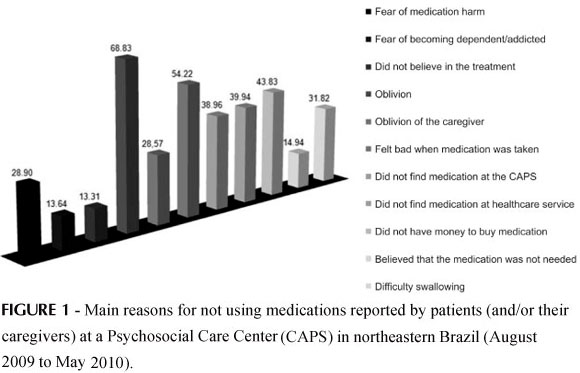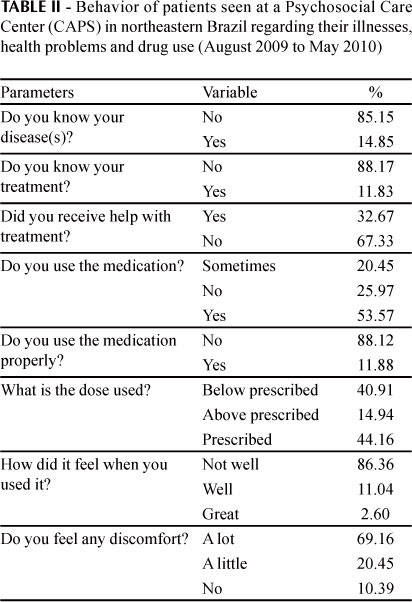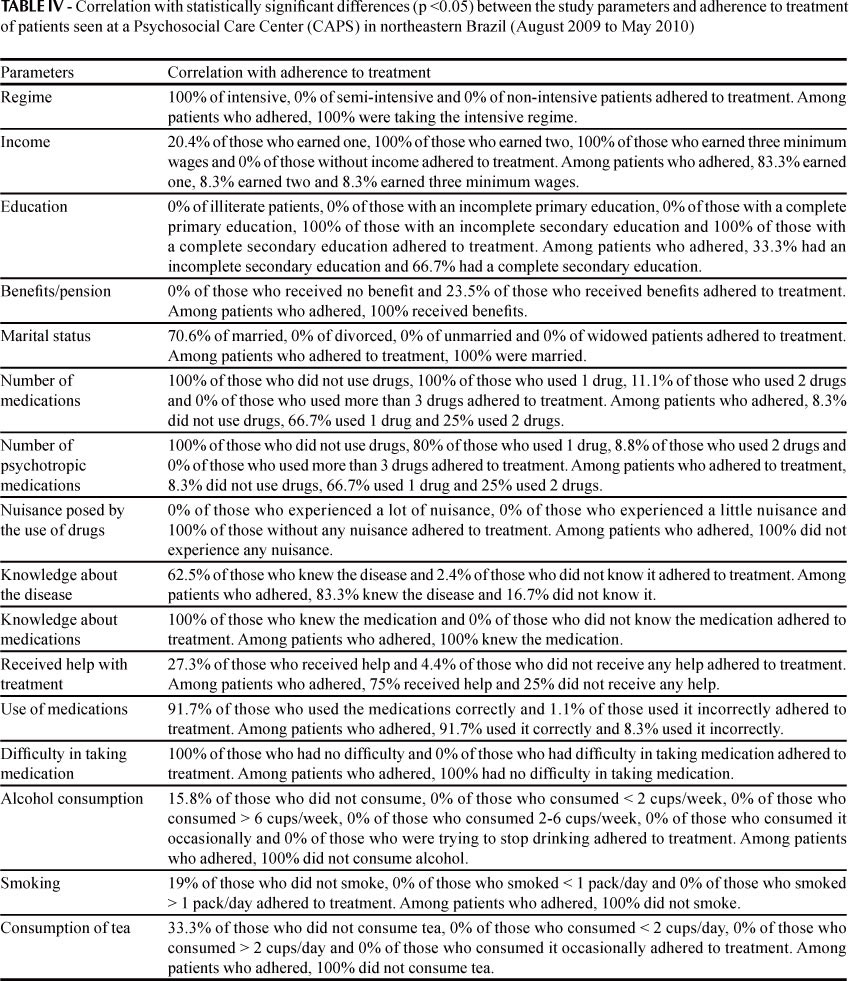In the treatment of mental disorders, nonadherence to medication, the main cause of psychiatric morbidity, is observed in about 50% of the cases and is responsible for numerous losses. This study evaluated adherence to drug treatment by patients seen in a Psychosocial Care Center (CAPS) in northeastern Brazil. Adherence to treatment was evaluated using the Haynes-Sackett and Morisky-Green-Levine tests. All patients registered in the CAPS were included in the study (n= 101). Only 11.88% of the patients adhered to drug treatment. The main reasons not to use medication were: oblivion (68.83%), feeling unwell after taking the medication (54.22%), not having money to buy the medication (43.83%), not finding the medication in the public health service (39.94%) and fear of harm that might be caused by the drug (28.90%). Furthermore, 85.1% of the patients did not know their diseases, 88.1% did not know their treatment, 86.4% did not feel good when they took their medication, and 88.1% took their medication incorrectly. The results revealed that the lack of information about diseases and drugs used, the nuisance posed by drug therapy and the low access to medications reduce adherence to treatment and, consequently, treatment effectiveness.
Treatment adherence; Drug therapy; Mental health; Psychosocial Care Center





